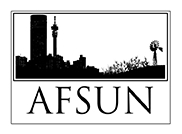Document Type
AFSUN Urban Food Security Series
Publication Date
2017
Department
Balsillie School of International Affairs
Abstract
Although there is widespread food availability in urban areas across the Global South, it is not correlated with universal access to adequate amounts of nutritious foods. This report is based on a household survey conducted in 2015 in six low-income informal areas in Malawi’s capital city, where three-quarters of the population live in informal settlements. Understanding the dimensions of household food insecurity in these neighbourhoods is critical to sustainable and inclusive growth in Lilongwe. The survey findings provide a complementary perspective to the 2008 AFSUN survey conducted in Blantyre, which suggested a level of food security in urban Malawi that was probably more typical of peri-urban areas where many people farm. Given that informal settlements house most of Malawi’s urban residents, the Lilongwe research presents a serious public policy challenge for the country’s leaders. Poverty is a profound problem in Malawi’s rapidly expanding cities. Of particular concern is the poor quality of diets among residents of informal settlements. Precarity of income, reflected in the survey findings of frequent purchasing of staple foods and the need for food sellers to extend credit, appears to be a key driver of food insecurity in these communities. Economically inclusive growth, with better prospects for stable employment and protection for informal-sector workers, appears to be the surest route to improved urban food security in Malawi.
Recommended Citation
Chilanga, E., Riley, L., Ngwira, J., Chalinda, C., & Masitala, L. (2017). Food Insecurity in Informal Settlements in Lilongwe, Malawi (rep., pp. i-33). Kingston, ON and Cape Town: African Food Security Urban Network. Urban Food Security Series No. 25.


